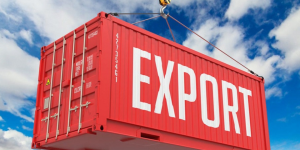
Nigeria’s non-oil export sector has shown remarkable growth, with earnings rising by 19.23% in October 2024, reaching $620 million from $520 million in September, according to the Central Bank of Nigeria (CBN). This significant surge underscores the nation’s ongoing efforts to diversify its economy beyond oil dependency, reflecting strategic shifts and policy reforms aimed at enhancing the non-oil sector.
Key Exporters and Commodities Driving Growth:
Leading the charge are prominent exporters such as Indorama Eleme Fertiliser & Chemical Ltd., which accounted for 18.97% of the total exports, primarily through urea shipments. Dangote Fertiliser Ltd. contributed 8.72% with fertilizer exports, while Outspan Nigeria Ltd. held an 8.45% share through cocoa exports. Starlink Global & Ideal Ltd. and Olatunde International Ltd. also played crucial roles, exporting dairy products and cocoa beans respectively.
Top Export Destinations:
Brazil and the Netherlands have emerged as pivotal markets for Nigeria’s non-oil exports, accounting for a significant share of the country’s export earnings. This trend underscores the global demand for Nigeria’s agricultural and manufactured goods and reflects successful economic partnerships and trade agreements aimed at expanding Nigeria’s export reach.
Economic Implications:
The surge in non-oil exports has positively impacted Nigeria’s trade balance, contributing to a trade surplus of $2.21 billion in October 2024, up from $2.07 billion in September. This improvement indicates a balanced growth in Nigeria’s export portfolio, driven by higher exports of both crude oil and non-oil products.
Sectoral Performance and Contributions:
The agricultural sector, particularly cocoa, played a significant role in this export growth. The manufacturing sector, focusing on fertilizers and chemicals, also contributed substantially, showcasing Nigeria’s industrial capabilities and the effectiveness of policies promoting value-added exports.
Government Initiatives and Policy Reforms:
The Nigerian government’s efforts to promote non-oil exports include the Export Expansion Grant (EEG) scheme and the Export Development Fund (EDF). Additionally, initiatives like unifying exchange rates and reducing fuel subsidies aim to stabilize the economy and create a conducive environment for exporters, improving competitiveness and attracting foreign investment.
Private Sector Involvement and Infrastructure Development:
The private sector has been instrumental in driving growth, with many companies investing in export-oriented industries such as agriculture and manufacturing. Improved infrastructure, such as ports and transportation networks, has enhanced the efficiency and competitiveness of Nigeria’s non-oil export sector, further supporting its growth.
Challenges and Opportunities:
Despite this growth, challenges remain. Infrastructure, particularly in ports and transportation networks, requires further investment to enhance efficiency. The policy and regulatory framework also needs strengthening to provide a more supportive environment for exporters. Additionally, Nigerian exporters face challenges in accessing international markets, especially in developed economies like the European Union.
Future Outlook and Conclusion:
The current trajectory suggests that Nigeria is well-positioned to increase its non-oil export earnings further. Continued government support, favorable economic policies, and private sector participation will be crucial in sustaining and accelerating this positive trend. Addressing the existing challenges will ensure that Nigeria’s non-oil export sector reaches its full potential, contributing significantly to the diversification and resilience of the national economy.

